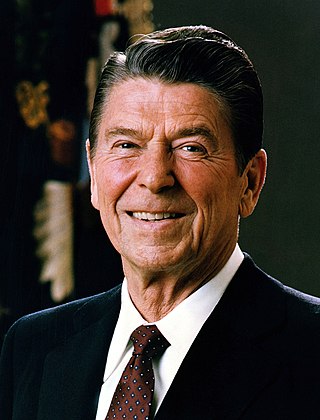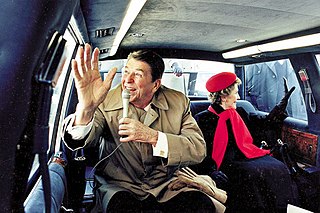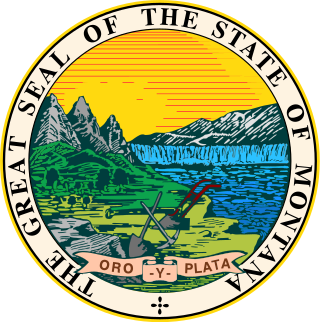| |||||||||||||||||
| |||||||||||||||||
| |||||||||||||||||
The 1958 California lieutenant gubernatorial election was held on November 4, 1958. Democratic nominee Glenn M. Anderson narrowly defeated incumbent Republican Harold J. Powers with 50.87% of the vote.
| |||||||||||||||||
| |||||||||||||||||
| |||||||||||||||||
| Elections in California |
|---|
 |
The 1958 California lieutenant gubernatorial election was held on November 4, 1958. Democratic nominee Glenn M. Anderson narrowly defeated incumbent Republican Harold J. Powers with 50.87% of the vote.
| Party | Candidate | Votes | % | ±% | |
|---|---|---|---|---|---|
| Democratic | Glenn M. Anderson | 2,626,626 | 50.87% | ||
| Republican | Harold J. Powers (incumbent) | 2,536,396 | 49.13% | ||
| Majority | 90,230 | ||||
| Turnout | |||||
| Republican gain from Democratic | Swing | ||||

The 1984 United States presidential election was the 50th quadrennial presidential election. It was held on Tuesday, November 6, 1984. Incumbent Republican president Ronald Reagan defeated Democratic former vice president Walter Mondale in a landslide, winning 525 electoral votes and 58.8 percent of the popular vote. No other candidate in history has matched Reagan's electoral vote total. This is the most recent U.S. presidential election in which a candidate received over 500 electoral votes and the most recent time that a major party candidate failed to carry more than 100 electoral votes. This is also the most recent election in which both candidates are deceased and the last to feature a non-incumbent vice president until 2020, which saw Joe Biden win the presidency four years after leaving the vice-presidential office.

The 1964 United States Senate elections were held on November 3. The 33 seats of Class 1 were contested in regular elections. Special elections were also held to fill vacancies. They coincided with the election of President Lyndon B. Johnson by an overwhelming majority, to a full term. His Democratic Party picked up a net two seats from the Republicans. As of 2022, this was the last time either party has had a two-thirds majority in the Senate, which would have hypothetically allowed the Senate Democrats to override a veto, propose constitutional amendments, convict and expel certain officials, or invoke cloture without any votes from Senate Republicans. In practice, however, internal divisions effectively prevented the Democrats from doing so. The Senate election coincided with Democratic gains in the House in the same year.

Glenn Malcolm Anderson was an American politician. He was the 37th Lieutenant Governor of California and later represented Southern Los Angeles County in the U.S. House of Representatives. He was a member of the Democratic Party.

John Stephen Horn was President of California State University, Long Beach and later a five-term Republican United States Congressman from California from 1993 to 2003.
California's 1st congressional district is a U.S. congressional district in California. Doug LaMalfa, a Republican, has represented the district since January 2013. Currently, it encompasses the northeastern part of the state. Since the 2022 election, it includes the counties of Butte, Colusa, Glenn, Lassen, Modoc, Shasta, Siskiyou, Sutter, and Tehama, and most of Yuba County. The largest cities in the district are Chico, Redding, and Yuba City.

The 1962 California gubernatorial election was held on November 6, 1962. The Democratic incumbent, Pat Brown, ran for re-election against former U.S. vice president and 1960 Republican presidential nominee Richard Nixon. In his concession speech the following morning, Nixon accused the media of favoring his opponent Brown, stating that it was his "last press conference" and "You won't have Nixon to kick around any more." Six years later, Nixon was elected President of the United States, and ten years later to the day, he was re-elected in a landslide.

The 1958 California gubernatorial election was held on Tuesday November 4, Democratic candidate Pat Brown won the first of his two terms as governor of California against Republican senator William Knowland.

From January 21 to June 3, 1980, voters of the Republican Party chose its nominee for president in the 1980 United States presidential election. Retired Hollywood actor and two-term California governor Ronald Reagan was selected as the nominee through a series of primary elections and caucuses culminating in the Republican National Convention held from July 14 to July 17, 1980, in Detroit, Michigan.

This is the electoral history of Ronald Reagan. Reagan, a Republican, served as the 40th president of the United States (1981–1989) and earlier as the 33rd governor of California (1967–1975). At 69 years, 349 days of age at the time of his first inauguration, Reagan was the oldest person to assume the presidency in the nation's history, until Donald Trump was inaugurated in 2017 at the age of 70 years, 220 days. In 1984, Reagan won re-election at the age of 73 years, 274 days, and was the oldest person to win a US presidential election until Joe Biden won the 2020 United States presidential election at the age of 77 years, 349 days.

The 2008 South Carolina Senate elections were held on Tuesday, November 4, 2008. The primary elections were held on June 10 and the runoff elections were held two weeks later on June 24. The current composition of the state delegation is 27 Republicans and 19 Democrats. Senators are elected for four-year terms, all in the same year.

The 1980 United States Senate election in Ohio took place on November 4, 1980. It was concurrent with elections to the United States House of Representatives. Incumbent Democratic U.S Senator John Glenn won re-election to a second term in a landslide with 69% of the vote, coinciding with Ronald Reagan's substantial win in the state during the presidential election. Glenn won by a state-record 1.6 million votes.

The Chicago mayoral election of 1983 was first the primary on February 22, 1983, which was followed by the general on April 12, 1983. The election saw the election of Chicago's first African-American mayor, Harold Washington. Incumbent Mayor Jane Byrne, who had served since April 16, 1979 had lost renomination in the Democratic primary in a three-way race between herself, then–Congressman Washington, and then–Cook County State’s Attorney Richard M. Daley in February 1983. Washington would face off against Republican nominee Bernard Epton, winning with a 3.7% lead over Epton in the general election.

The 1958 United States Senate election in Montana took place on November 4, 1958. Incumbent United States Senator Mike Mansfield, who was first elected to the Senate in 1952, ran for re-election. Mansfield won the Democratic primary comfortably, and moved on to the general election, where he was opposed by Lou W. Welch, a millworker and the Republican nominee. In contrast to the close campaign in 1952, Mansfield defeated Welch in a landslide and won his second term in the Senate easily.

The 185th New York State Legislature, consisting of the New York State Senate and the New York State Assembly, met from January 5, 1983, to December 31, 1984, during the first and second years of Mario Cuomo's governorship, in Albany.

The 1924 Iowa gubernatorial election was held on November 4, 1924. Republican nominee John Hammill defeated Democratic nominee James C. Murtagh with 72.72% of the vote.

The 1904 North Carolina gubernatorial election was held on November 8, 1904. Democratic nominee Robert Broadnax Glenn defeated Republican nominee Charles J. Harris with 61.72% of the vote. At the time, Glenn was an attorney and former member of the state Senate, while Harris was a businessman and former member of the United States Industrial Commission.

Elections were held in Illinois on Tuesday, November 4, 1958.

The 1966 California lieutenant gubernatorial election was held on November 8, 1966. Republican nominee Robert Finch defeated Democratic incumbent Glenn M. Anderson with 59.79% of the vote.

The 1962 California lieutenant gubernatorial election was held on November 6, 1962. Democratic incumbent Glenn M. Anderson narrowly defeated Republican nominee George Christopher with 51.42% of the vote.

The 1954 California lieutenant gubernatorial election was held on November 2, 1954. Incumbent Republican Harold J. Powers defeated Democratic nominee Edward R. Roybal with 55.34% of the vote.